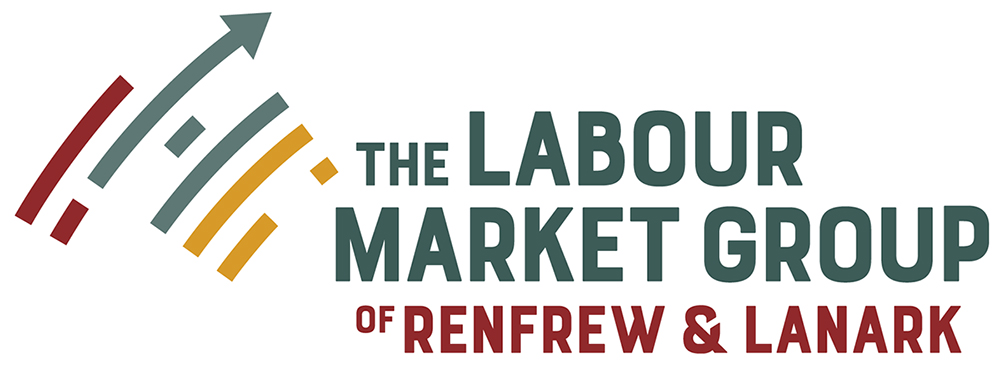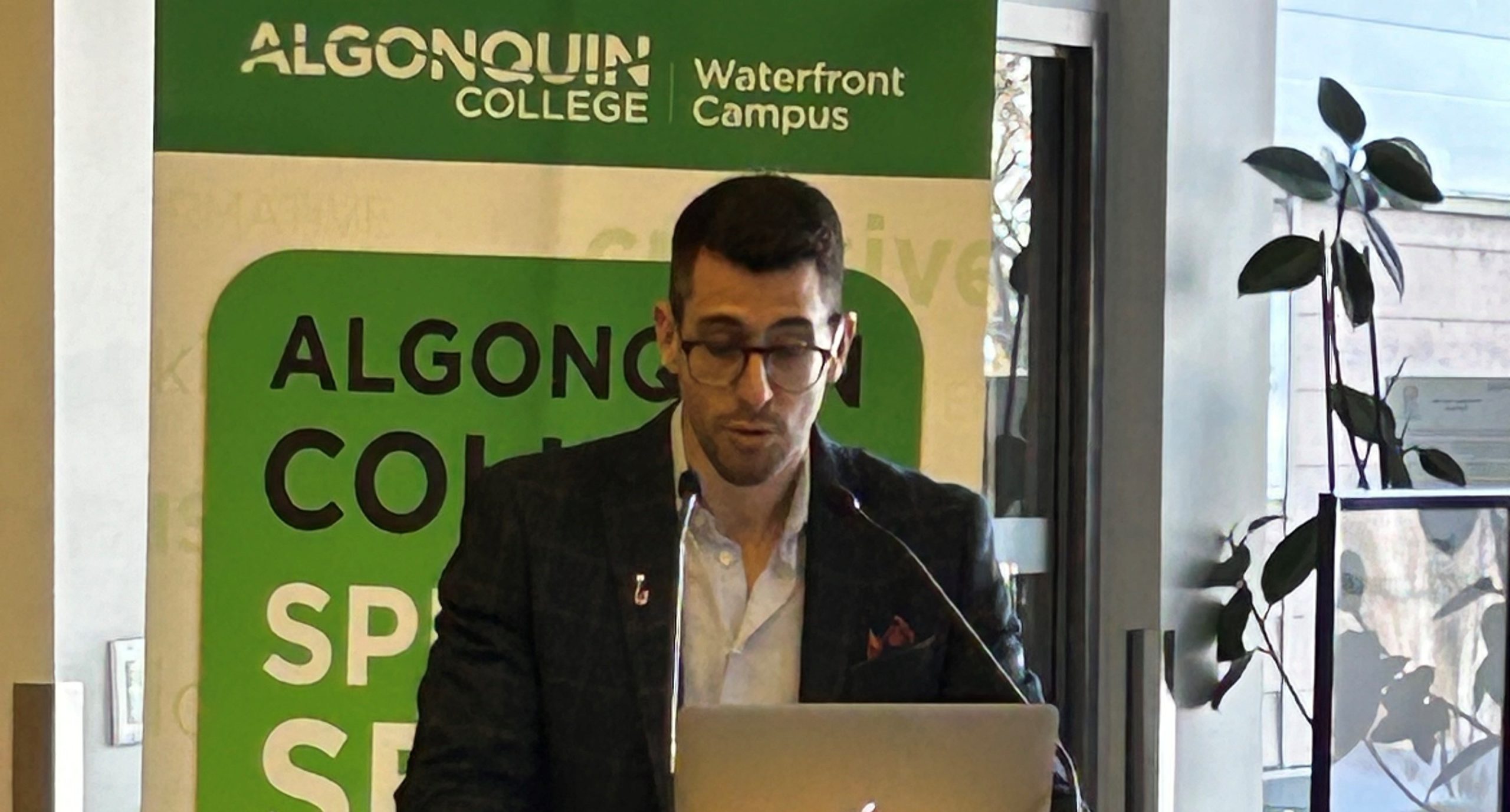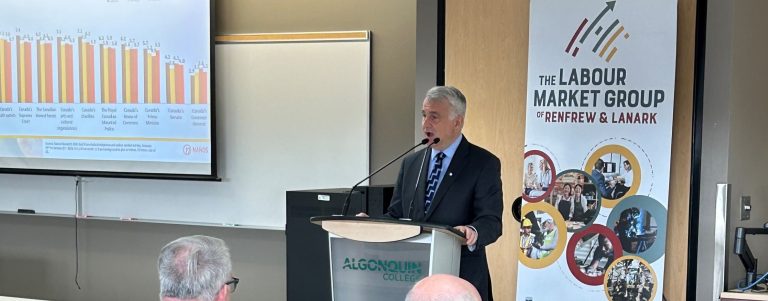The world of work is being turned upside down and at the centre of this evolution is artificial intelligence. For an hour, technology journalist Jared Lindzon who writes for some of the biggest and most influential newspapers and magazines in Canada captivated his audience with stories of how the way we work and learn is changing rapidly.
Lindzon was at the Pembroke Waterfront Campus and delivered his talk to a large in person and virtual audience that included faculty, support staff and administration from all of Algonquin College’s campuses. His message was clear.
“The A.I. writing is on the wall. Change is coming and fast”, said Lindzon who spends his days researching and writing about what is one of the most significant technological advancements in human history.
“What we are witnessing is the crumbling of work place structures that have been in place since the industrial revolution,” said Lindzon who expects the pressure to grow on employers to provide more flexibility to their workers. The use of A.I. will be part of that process. Lindzon envisions a workforce where asynchronous meetings become the norm and where A.I. can take notes and respond for employees as working schedules become more flexible.
By creating more flexibility by using A.I. tools, Lindzon says there is an opportunity for greater efficiency, allowing workers to increase their productivity while having the ability to choose how they use their time to complete work assignments. “The standard 9-to-5 Monday to Friday schedule still exists, but it is no longer the only option.”
When Steve Jobs introduced the world to the I-phone in 2007 it was transformational. The phone became the primary mode of communicating with others, whether it was e-mail, texting, searching for information or scheduling appointments. A.I. is the next big thing.
It’s not without risks and the people who have brought A.I. to the world realize there are gaps and concerns that A.I. can do some harm, but Lindzon is taking a ‘glass half full’ approach to how A.I. can benefit workers and students. There is plenty of evidence that A.I. is being accessed as a competitive advantage within organizations. Lindzon cited that in the past two years, job postings mentioning A.I. have more than doubled.
He encouraged teachers to test A.I., because their students are using it. “What the calculator did for math, A.I. will do for writing and virtual communication,” said Lindzon as he broached the subject of plagiarism in post-secondary education. He understands it’s a major concern in higher education, but also said educators at all levels must adapt.
“Don’t operate in a world that this technology does not exist,” Lindzon told the audience as he spoke about leveraging the technology to strengthen the learning and work place experience.
Lindzon believes strongly that soft skills and practical learning experiences such as co-op education for students will continue to be the primary differentiator in the workplace, as A.I. forces businesses and organizations to embrace artificial intelligence. The next generation of workers and learners will grow up with A.I. as millennials did with the Internet. Change happens.
The presentation was sponsored by the Labour Market Group of Lanark and Renfrew.
By Jamie Bramburger – Manger of Community and Student Affairs – Algonquin College Waterfront Campus Pembroke
WATCH Jared Lindzon’s Presentation AI’s Impact on Today’s Students and Tomorrow’s Workers




